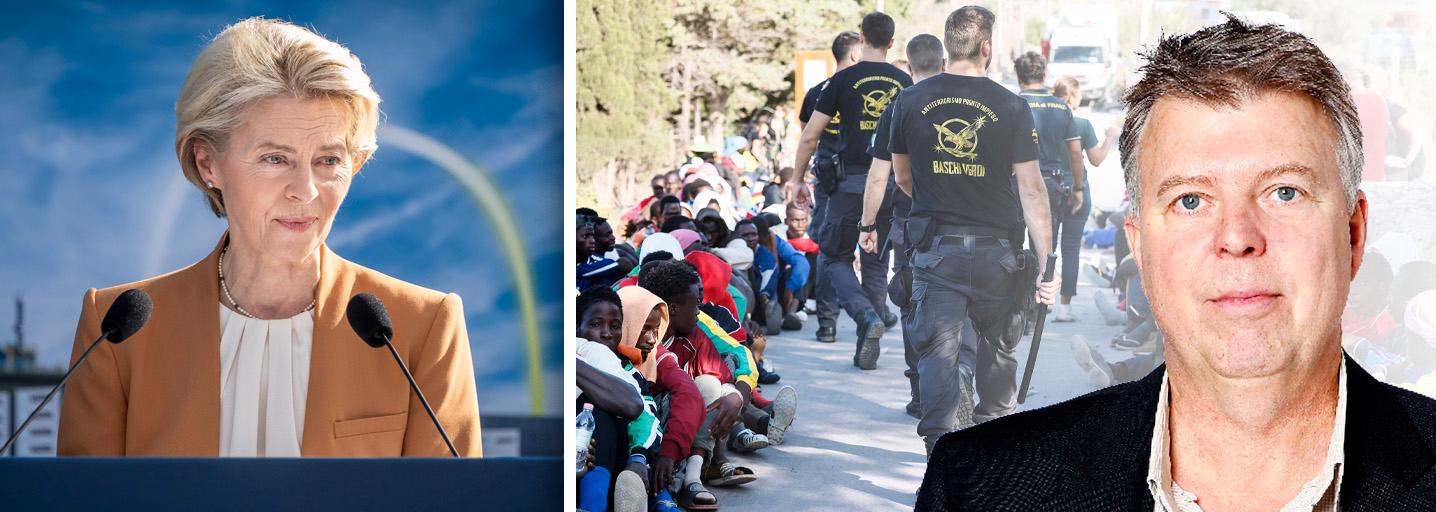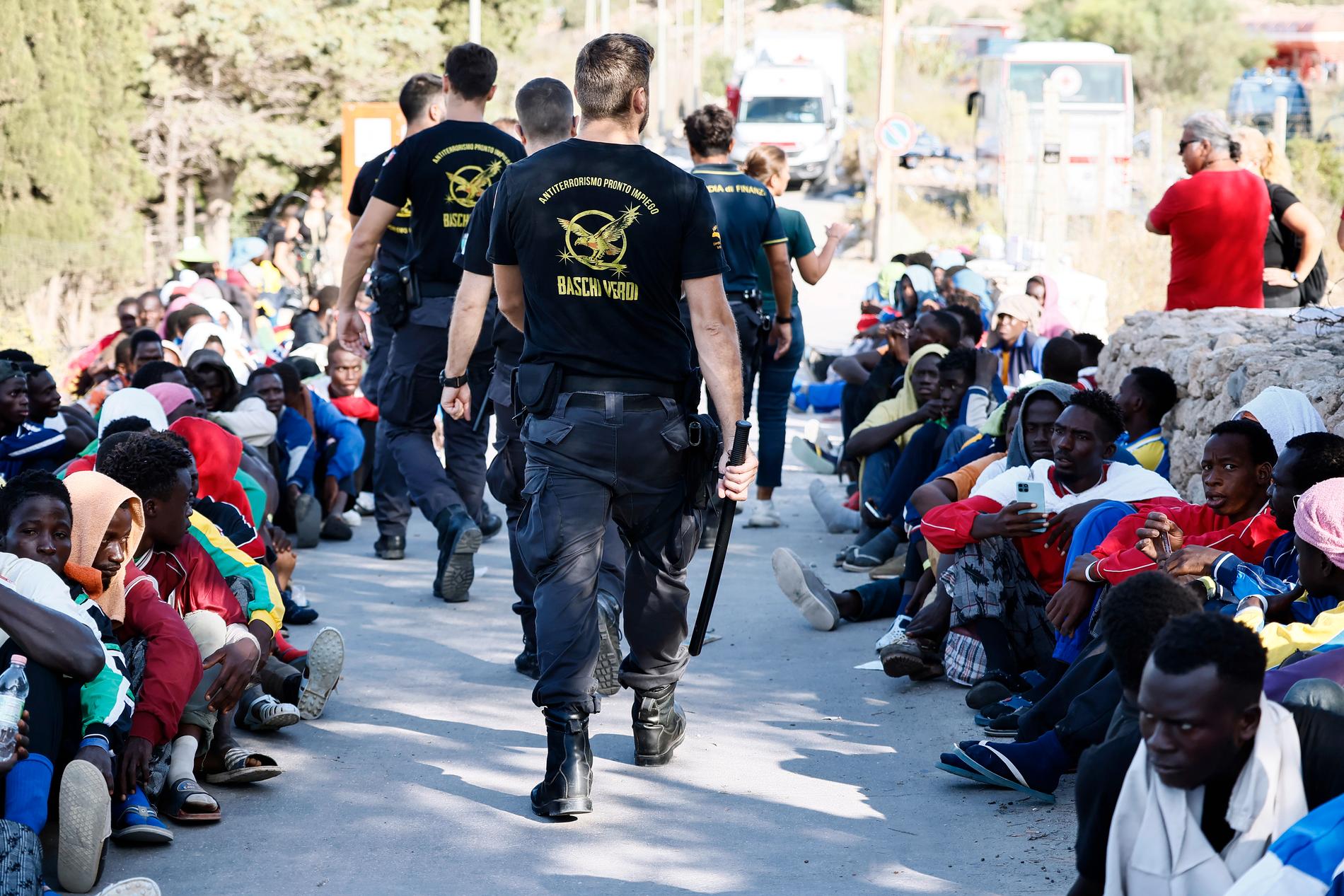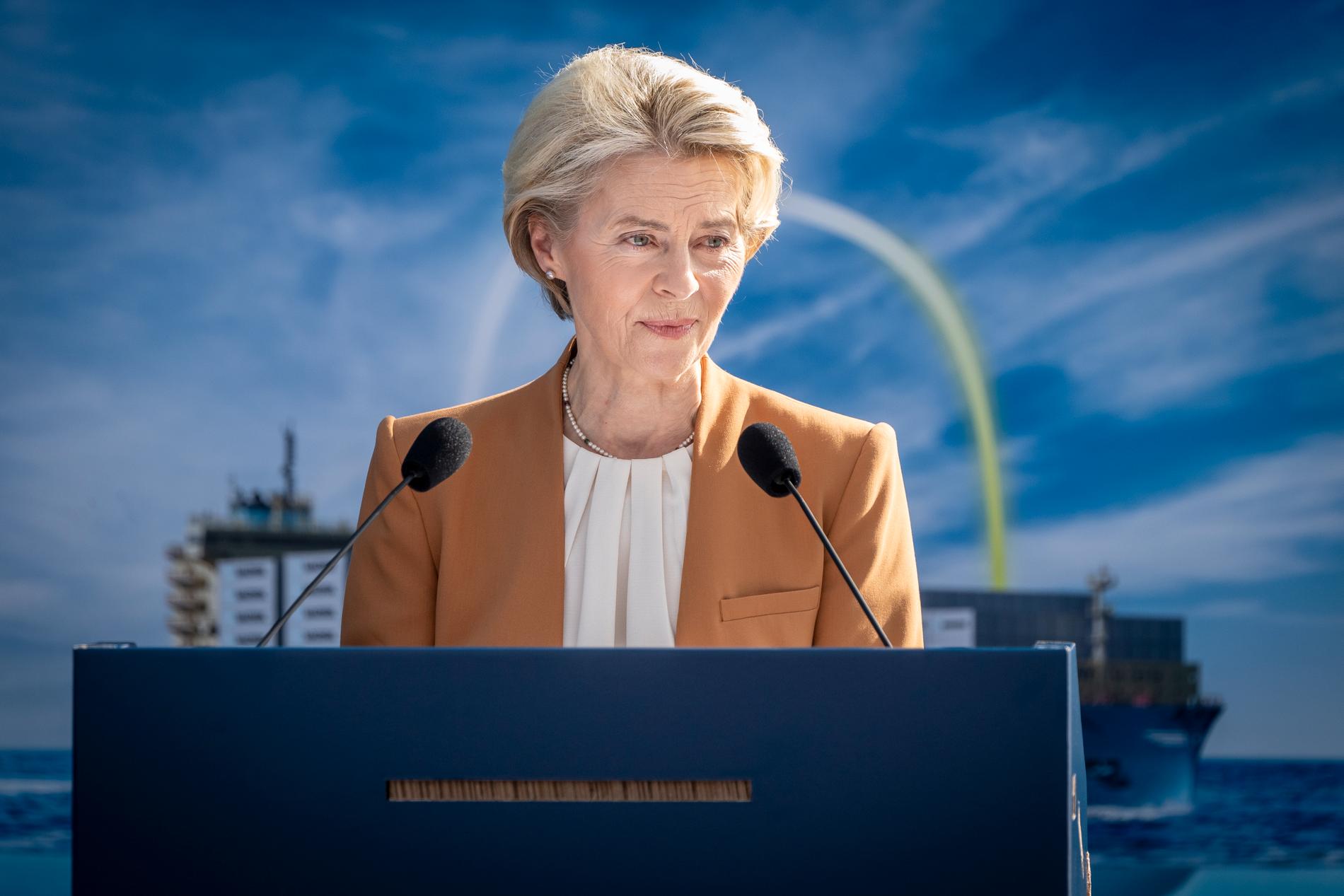Lampedusa
Urusla von der Leyen indulges in wishful thinking about migration
Wolfgang Hansson
This is a commenting text. Analysis and positions are the writer's.
Published at 9:31 am
Columnists
When EU chief Ursula von der Leyen says that it is the EU that decides who will be allowed to come to Europe, not the people smugglers, she is engaging in naive wishful thinking.
Reality has contradicted her for years and there is no indication that the new rules presented by the EU will stop the flow of irregular immigration to Europe.
The reaction when thousands of refugees and migrants disembarked on the small Italian island of Lampedusa in mid-September says the most about the cooperative climate between Europe's countries when it comes to receiving non-European refugees.
When Italy appealed for help, France and Germany quickly replied that they absolutely did not intend to accept any asylum seekers who came to Lampedusa.
This despite the fact that so far this year Italy has received 120,000 refugees and migrants who have crossed the Mediterranean. More than what is required to trigger the "forced solidarity" which, according to a settlement that EU Commissioner Ylva Johansson presented this summer, would mean that 30,000 asylum seekers should be able to be redistributed to other countries.
Who will receive these is highly unclear because many countries say no or can only imagine receiving a few. In addition, countries that want to buy can free themselves.
The latest Lampedusa case shows how incredibly fragile any alleged agreement on an EU-wide migration pact really is.
It is not possible to reach an agreement on the combination of force and aid that would be needed to put an end to boat trips across the Mediterranean.
But it is also not possible to get the 27 member states to fairly distribute the asylum seekers who come because the will to receive them and relieve countries like Greece and Italy is extremely low.
Police officers monitor refugees on Lampedusa. Image from September 15. Police officers monitor refugees on Lampedusa. Image from September 15. Photo: Cecilia Fabiano / AP
Agreement a fiasco
The President of the European Commission, Ursula von der Leyen, has repeatedly promised that the EU will use joint efforts to crush the business model of people smugglers.
It is about luring people in poor and war-torn countries to, despite the risk of dying in the Mediterranean, put everything they own and have into trying to get to Europe, where the smugglers paint a bright picture of the riches that await.
This summer, the EU entered into an agreement with Tunisia in which the country was promised multi-billion sums in exchange for them stopping the traffic of unseaworthy boats overloaded with illegal immigrants.
An agreement that has so far been a fiasco.
When over five thousand made it to Lampedusa in one day earlier this month, it was precisely from Tunisia that they came. Nevertheless, the EU head stands up and says:
- We decide who comes to the EU and in what way. Not the smugglers.
Leyen rather talks about how it should be.The reality is the exact opposite.
It is the human smugglers who control the migrant flows. The EU has so far proven completely unable to stop the dangerous boat trips that have led to at least 2,000 drownings in the Mediterranean so far this year, or to create safe, legal routes into the EU for those who want to get there.
Ursula von der Leyen, President of the European Commission. Photo: Mads Claus Rasmussen / Ritzau Scanpix
Like gang violence in Sweden
When von der Leyen visited Lampedusa together with Italy's far-right Prime Minister Giorgia Meloni , she promised a "coordinated response from Brussels".
What came were extra tough French border controls on the border with Italy.
Meloni demands an "effective naval blockade" from the EU to stop the migrant boats from Tunisia, Libya and other countries. Von der Leyen promised to "try to find new ways" to stop human smuggling. But the toolbox starts to wear out if you don't want to use the sledgehammer. The majority in the EU does not want to go that way because the leaders still want to be able to say that they uphold the right to asylum.
Von der Leyen also promised a quick return of those who do not have valid reasons for asylum. Probably an empty promise too. One of the big problems for many years has been that many of those who are rejected on their asylum application go underground and become part of Europe's rapidly growing shadow society instead of returning.
Illegal migration has become for Europe what gang violence is for Sweden. An eternal problem where new solutions are constantly being presented but where the phenomenon refuses to end despite all the promises to take action.



Inga kommentarer:
Skicka en kommentar